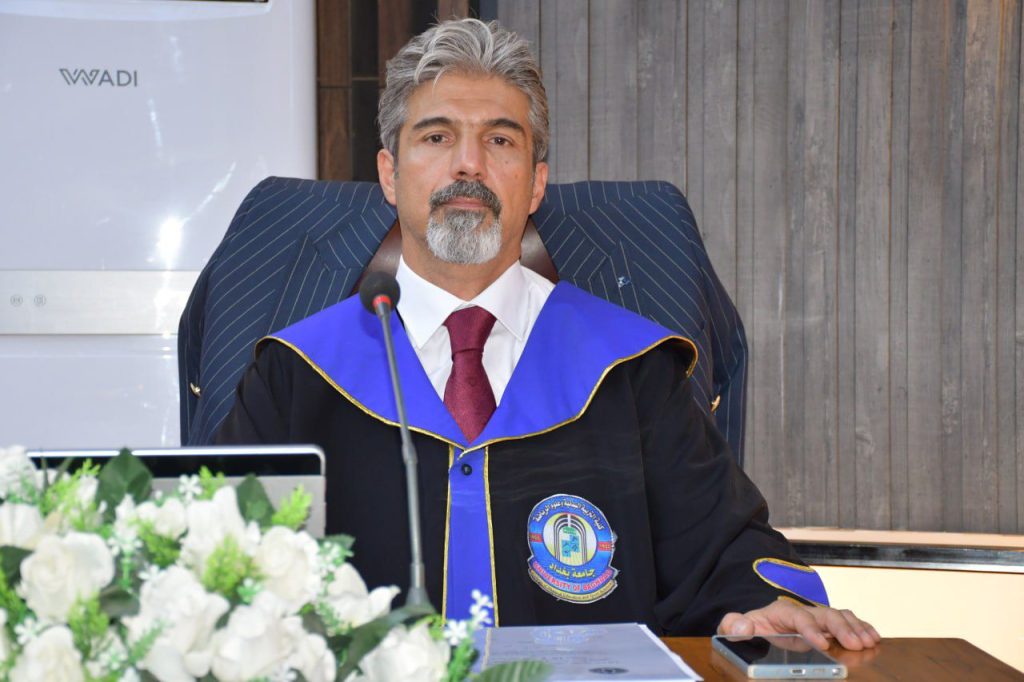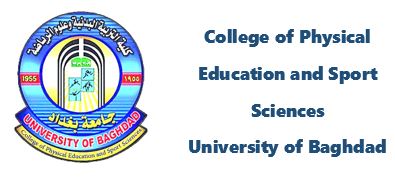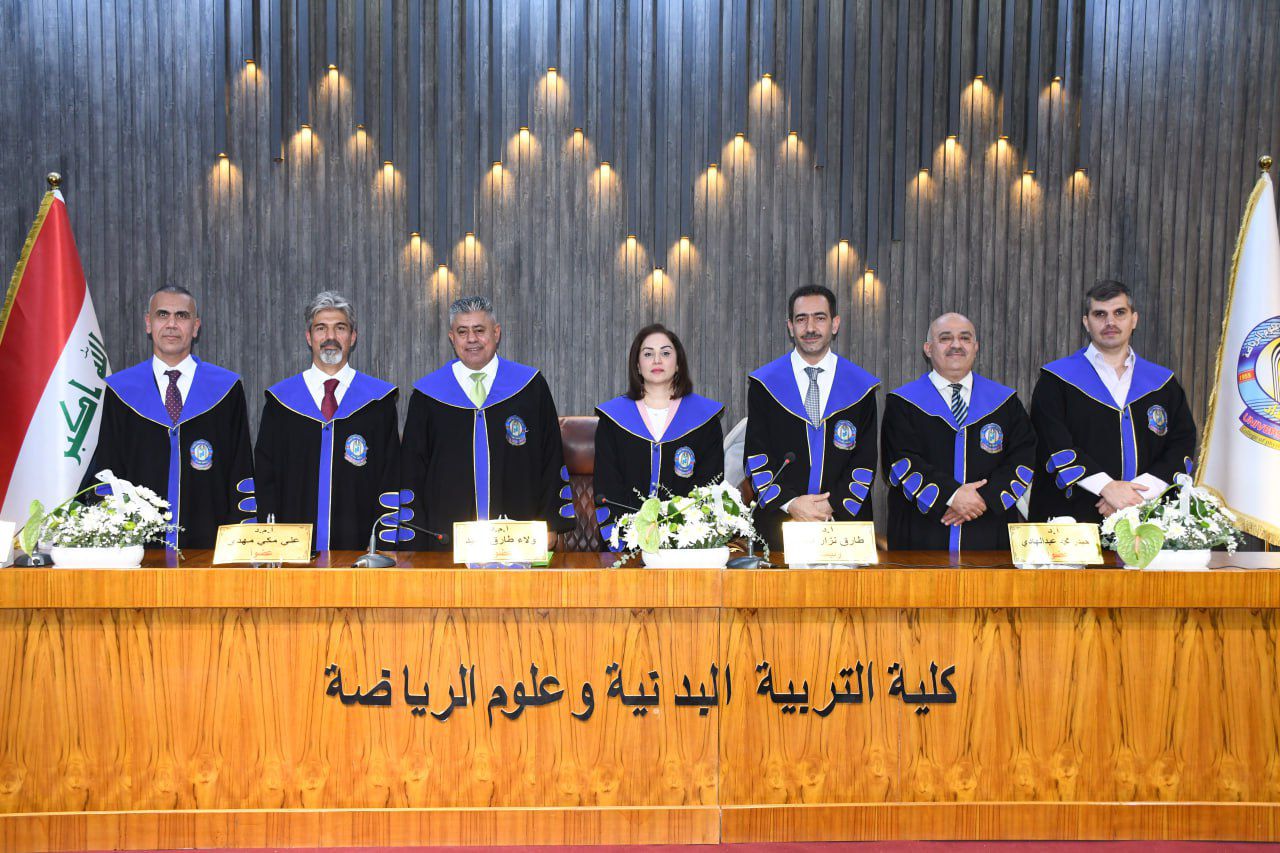The College of Physical Education and Sports Sciences at the University of Baghdad discussed a PhD dissertation by student Zaher Mohammed Hassan Mohammed, titled “The Effect of Contextual Interference on Some Motor Abilities, the Learning Curve, and Retention of Freestyle and Backstroke Swimming for Beginners Aged 8–10.”
The study aimed to identify the most effective teaching strategies for helping young beginners acquire and retain swimming skills. It focused on a contextual interference-based instructional program and the role of varied training schedules in developing motor abilities such as balance and coordination, as well as improving the learning and retention curves of both freestyle and backstroke swimming.
Findings revealed that using contextual interference significantly enhanced motor skills and reduced learning time for the experimental group, which learned both strokes within the same period—unlike the control groups that learned only one. The program also improved long-term retention of the skills.
The researcher recommended implementing contextual interference approaches in swimming education and designing modern training curricula for swim instructors aligned with current best practices.
This research aligns with the Sustainable Development Goals: Quality Education, Good Health and Well-being, and Lifelong Learning Opportunities for All.










